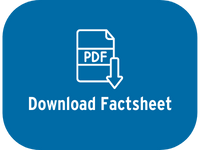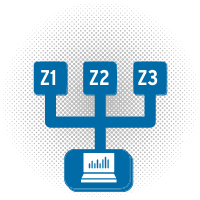Digital Audit - (Standard Audit File Tax SAF-T/ GDPdU) within Oracle ERP Cloud
In its letter of 14 November 2014 (principles regarding the proper keeping and preservation of books,records and documents in electronic format and regarding data access (GoBD), the fiscal authority has replaced the existing BMF letters GDPdU of 16 July 2001 and GoBS of 7 November 1995 and re-regulated the GoBD.
The new GoBD apply to all companies under a legal obligation to keep records, but also to all taxable persons who determine the taxable result using the cash method of accounting and all entrepreneurs as defined in the value-added tax act who are using an electronic accounting method for this. The new GoBD have an influence on all digital book-keeping, ERP systems and the associated IT-supported business processes.The fiscal authority will check observance of the GoBD at thelatest in the context of the next tax audit.
The principles for these requirements have not changed since then and the definition of which data are 'data relevant for tax purposes' is now largely established. While the right to digital access was used relatively rarely in the early years, a current study involving 230 companies showed that digital access was requested in fully 81% of all audits for the years 2010 and 2011. Furthermore, it is becoming clear that so-called Z3 access (data relevant for the audit have to be provided in a special format on a data carrier) is becoming the de facto standard. Insofar Your Oracle ERP Cloud solution has to be configured to ensure that the three possible access methods are promptly available for the next audit in order to avoid problems during the audit or even the assessment of late payment penalties.
Requirements for the implemenation of SAF-T/ GDPdU inside Oracle ERP Cloud
Within the Oracle ERP Cloud, the technical prerequisites for the following three access scenarios have to be established:
- Z1 access – the auditor accesses the company’s digital data directly:
Since the auditor is granted direct access to the system, the definition of special ‘Auditor’ access rights has to ensure that read access is provided to information relevant for tax purposes for the accounting unit subject to German law. With a few “tricks” within the Oracle EBS standard, such access rights (-> read only access to entries relevant for tax purposes for a specific period and a specific accounting unit) can be readily implemented with a reasonable amount of effort. - Z2 access – the auditor accesses the data indirectly with the support of a company employee:
This type of access does not require any modifications, since either the ‘Auditor’ access rights or the access rights of the respective employee can be used. - Z3 access – the auditor is provided with the data relevant for the audit in a special format on a data carrier, so they can be evaluated with the IDEA audit software used by the fiscal authorities.Implementing this requirement is somewhat more complex and, requires minor modifications and adaptations.
Certified GoBD/ GDPdU Interface Digital Audit - (Standard Audit File Tax SAF-T)
For this purpose, PDG developed its Oracle AddOn, which creates the German SAFT-T (Standard Audit File - Tax), also called GOBD-Extract or Z3-Extract. This file is usually requested by the Tax Auditors as part there audit.
This extension does not modify the Oracle Cloud setup and is already being used successfully by more than 150 customers.





